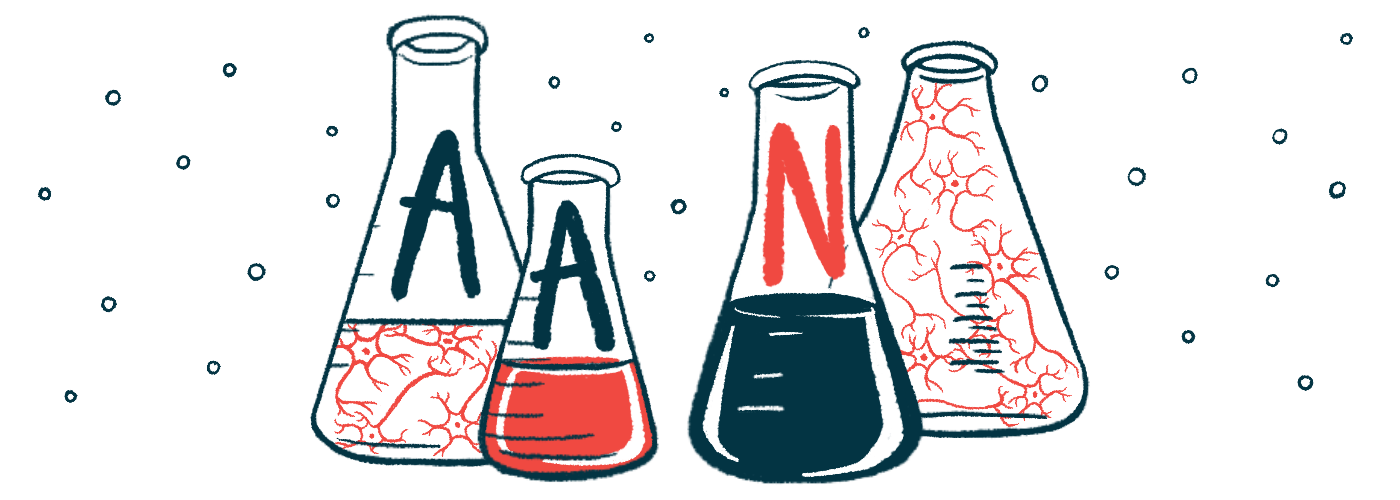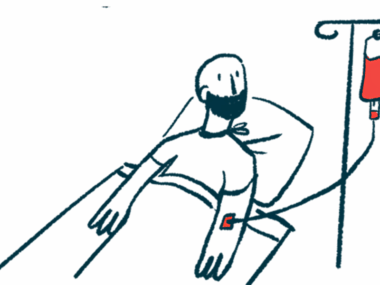AAN 2023: Vyvgart for 2 years seen to ease symptoms of gMG in study
Long-term use of approved therapy shows safety, efficacy in follow-up
Written by |

Treatment with Vyvgart (efgartigimod alfa-fcab) over two years was found to safely and effectively ease symptoms of generalized myasthenia gravis (gMG) among participants in an open-label extension study, according to an analysis of new data.
“This analysis suggests that long-term efgartigimod [Vyvgart] treatment is well tolerated and efficacious in patients with gMG,” the researchers wrote, noting that the therapy’s use “results in consistent and repeatable reductions in … antibody levels and [positive] clinical outcomes.”
The findings were presented by Mamatha Pasnoor, MD, of the University of Kansas Medical Center, at the American Academy of Neurology (AAN) 2023 Annual Meeting, held April 22-27 in Boston and virtually.
The presentation was titled, “Long-Term Safety, Tolerability, And Efficacy of Efgartigimod in Patients with Generalized Myasthenia Gravis: Concluding Analyses from the ADAPT+ Study.” The work was funded by Argenx, the company that markets Vyvgart. Pasnoor, a professor in the department of neurology at the University of Kansas, has served as a consultant for Argenx.
Researchers share results of ADAPT+ extension study of Vyvgart (efgartigimod)
Vyvgart is approved in the U.S. to treat adults with gMG who are positive for antibodies against the acethylcholine receptor (AChR) — the most common type of MG-driving antibodies.
The medication is designed to lower the levels of disease-driving antibodies by blocking the activity of a protein called neonatal Fc receptor, which normally helps stabilize and prevent the degradation of antibodies circulating in the bloodstream.
One treatment cycle of Vyvgart consists of four hour-long infusions, given weekly for four weeks. After an initial cycle of treatment, additional cycles are given based on a patient’s response.
Vyvgart’s approval was mainly supported by data from the Phase 3 ADAPT trial (NCT03669588), which tested the therapy against a placebo, given on top of standard of care treatment, in 167 adults with generalized MG.
Results showed that Vyvgart outperformed the placebo in easing MG symptoms, as measured by changes in the scores of the MG Activities of Daily Living (MG-ADL) and the Quantitative MG (QMG) scales.
After the six-month ADAPT study, most participants completing the trial elected to enroll in an open-label extension study called ADAPT+ (NCT03770403), designed primarily to evaluate the therapy’s safety and tolerability. All were treated with Vyvgart.
As of January 2022, 145 patients in ADAPT+ had received at least one treatment cycle with Vyvgart. About three-quarters (76.6%) of these patients were positive for antibodies against AChR.
As of data cutoff, participants had been followed for a mean of nearly two years.
In agreement with previous findings, data presented at the AAN meeting showed that each treatment cycle of Vyvgart led to consistent and repeatable improvements in measures of disease severity for up to 11 treatment cycles in anti-AChR-positive patients. Specifically, MG-ADL scores improved by a mean of five points, and QMG scores increased by 4.7 points.
Levels of antibodies against AChR, as well as total levels of the antibody class known as immunoglobulin G (IgG), also dropped consistently following each treatment cycle.
Treatment with Vyvgart “resulted in consistent and repeatable improvements in MG-ADL and QMG scores,” Pasnoor said, noting that similar results were seen for the overall patient population.
On the third week of each treatment cycle, nearly 9 in 10 patients (89%) had a clinically meaningful improvement of at least two points on the MG-ADL scale, and almost two-thirds (64.4%) had a clinically meaningful improvement of at least three points on the QMG scale.
In contrast, at the same time point, less than half (45.9%) of patients given a placebo in ADAPT achieved the same clinically meaningful outcome regarding MG-ADL, and around a quarter (27.6%) showed a clinically meaningful improvement on the QMG scale.
Additionally, the percentage of patients who saw their MG-ADL scores worsen was lower in the efgartigimod or Vyvgart group compared with the placebo group (2.7% vs. 21.3%). Similar observations were made regarding QMG scores.
Comparisons of the time span between treatment cycles revealed the existence of variations from patient to patient. In about a third of these cases (36.9%), efgartigimod cycles were given less than six weeks apart. However, in another third (35.9%), they were given at an interval of nine weeks or more.
These findings “support an individualized treatment approach” for Vyvgart in gMG, the researchers noted.
Safety data from ADAPT+ was generally consistent with findings from the original ADAPT trial. Commonly reported side effects included headache, nausea, diarrhea, and infections like the common cold, urinary tract infections, and COVID-19. Most of these were mild to moderate in severity and their frequency did not increase with subsequent treatment cycles.
“There were five deaths in ADAPT+, but per the PIs [principal investigators] these were not related to the medication,” Pasnoor said.
The therapy also was not seen to alter the levels of LDL cholesterol, the so-called bad cholesterol, or the protein albumin.
Note: The Myasthenia Gravis News team is providing coverage of the American Academy of Neurology (AAN) 2023 Annual Meeting April 22-27. Go here to see the latest stories from the conference.




Leave a comment
Fill in the required fields to post. Your email address will not be published.